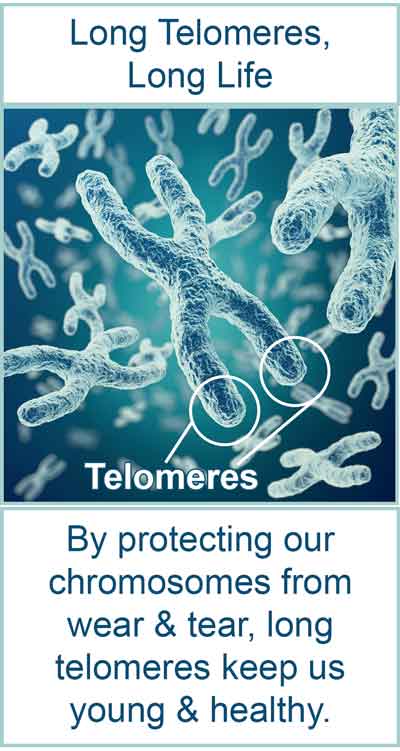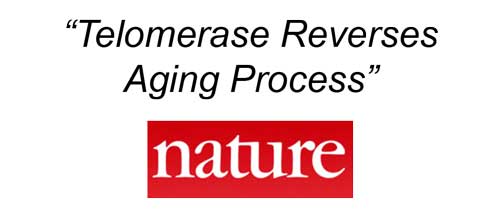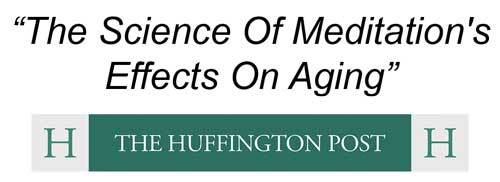Super Longevity: How Meditation Increases Life Span
Super-Longevity: How Meditation Slows Aging, Extends Lifespan

Not only do experienced meditators often look decades younger than their "true" age, but they also live much longer lives than the rest of us mere mortals.
And the reasons why are nothing short of incredible.
Here, we take a look at the most fascinating age defying studies making news headlines, and why meditation is the very best way to freeze father time.
Why Meditation Is The Best Antioxidant
What Is A Free Radical?

Buzzwords, we hear them everyday. So many products out there claim to be an "antioxidant."
Because it sounds healthy we usually fork over our hard earned cash without second thought.
After all, who doesn’t want to scavenge free radicals? Whatever that means. Must be a good thing!
But really, what are free radicals, what are antioxidants, and for those of us wanting to live a long, healthy life, why do they matter so much?
Think back to chemistry class, what's the smallest part of matter? The atom!
Well, your body has a whole bunch of them, somewhere around 7 x 10^27 atoms! That’s 7 followed by 27 zeros!

When one of our many atoms unpairs an electron from its outermost shell — the whole molecule becomes unstable, chemically reactive, and highly unpredictable. This is a free radical.
Free radicals need to regain their lost electron so badly that they resort to stealing it from the nearest molecule. Think of a junkie so desperate for a hit that he resorts to robbing his own brother at gunpoint.
When a free radical electron robbery is successful, the offender is made whole again, and the victim is now left short. And he too, becomes desperate, and will take it from the nearest molecular bystander. And the process repeats.
The thing is, even if a free radical regains stability through electron theft, things are never really the same. The criminal action damages and even mutates parts of our cell, including our proteins, DNA, and cellular membranes.
Oxidative Stress: The Free Radical "Zombie Apocalypse"

If our body can’t effectively neutralize free radicals, then a chain reaction called 'oxidative stress' begins, which can be thought of as a cellular aging "zombie apocalypse".
With an estimated 6.023 x 10^21 (6 followed by 21 zeros!) molecules reacting per second, oxidative stress is like dropping a nuke on bodily tissue. What kind of damage can it do?
For starters, it mutates our cells, hyper speeds our physical aging (skin spots, sagging, wrinkles, etc), hardens our arteries (stroke, heart disease, etc.), damages our DNA, and much more.
With arthritis, atherosclerosis, Alzheimer's disease, and diabetes exits on the oxidative stress interstate, the inability to handle free radicals puts us well on our way to countless diseases. The final stop? Cancer.
With so many angles of attack, it's easy to see why oxidative stress is perhaps the most scientifically accepted and well-recognized theory of aging.
How Antioxidants Work

Back to that missing electron. Like Santa Claus, antioxidants leave electrons under the tree of naughty free radicals, converting them back into nice, stable molecules come Christmas morning.
In case you didn’t catch that, antioxidants work by donating electrons to unstable free radicals, stabilizing them as a result.
In this way, antioxidants avert the free radical hyper cell aging scenario which makes us look like we moonlight as an LAX air traffic controller.

While you can get antioxidants from many sources, including food, being able to let stress roll off your back is perhaps the greatest free-radical neutralizing weapon in your arsenal.
While we could focus on a number of ways meditation scavenges free radicals (like mastering stress, boosting melatonin, etc.), we will not do that here. It's too easy. Let's take it up a notch.
The Legend Of Glutathione: Meditation Boosts The "Mother Of All Antoxidants"

Backed by 117,000 peer reviewed scientific studies, meditation has been shown to boost 'glutathione' (GSH), the Huffington Post anointed "mother of all antioxidants."
The benefits of GSH span the seven great seas. So, what are the experts saying?
Gustavo Bounous MD, retired McGill University professor told Medicinenet.com that "It's the [body's] most important antioxidant because it's within the cell [which is prime position to neutralize free radicals]."

Jeremy Appleton ND, a naturopathic physician and respected author, was recently quoted:
"If you look in a hospital situation at people who have cancer, AIDS, or other very serious disease, almost invariably they are depleted in glutathione," says Appleton. "The reasons for this are not completely understood, but we do know that glutathione is extremely important for maintaining intracellular health."

Glutathione not only hinders oxidative stress, but also plays a helper role for many critical enzymes, fights cancer by slowing apoptosis (programmed cell death), boosts t-cells, shields environmental toxin damage, guards against drug resistance, while super charging immunity.
The thing is, GSH is not well absorbed into the body when taken as a supplement (capsule). While intravenous results are more promising, there is no need to become a pin cushion.

Why? Because meditation supercharges your body with glutathione!
Study: Meditation Boosts Glutathione By 41%!
A well-cited 51 person study published in the Journal of Alternative and Complementary Medicine (Sinha et al, 2007) showed that, alongside yoga, meditation boosts this powerhouse peptide by a whopping 41%! (235 -> 332).
Like the mythical Li Ching-Yuen, can meditation help you live a demigod-like 256 years? (Side Note: While his actual lifespan hasn’t been officially proven, he did credit his longevity to Tai-Chi, a form of moving meditation.)
What can be confirmed is that by neutralizing free radicals faster than Rambo, meditation plants you firmly in the driver seat for a long, healthy life.
Meditation: Reap The Benefits Of Red Wine, Minus The Hangover
The Magic Of Resveratrol

You have seen the headlines. Red wine, in small amounts, can extend your life.
In 2016, Antonio Docampo Garcia, a 107 year old Spanish vineyard owner, credited his longevity to drinking four bottles (!) of the good stuff every day. Yeah, moderation.
The crimson colored superfood is credited for the "French Paradox," a highly researched phenomena where people living in certain parts of wine-happy France have far fewer cases of heart disease, and far more durable tickers overall.
While our ancestors drank barrel after barrel to treat countless ailments, thousands of scientific and anecdotal studies have followed up to confirm the powerful elixir's wide reaching health benefits.
So, what’s the magic ingredient in red wine? Resveratrol.
Sitting atop Dr. Oz’s "4 Top Supplements For A Longer Life" list, it seems every month or two we see a newspaper article gushing about a newly discovered reservatrol fountain of youth-like benefit.

With more than 220,000 Google Scholar search results, this natural antioxidant packs a heavy academic research paper punch.
What can it do? With benefits like improving memory, cutting fat cells, slowing cancer, inhibiting vascular disease, preventing brain deterioration (Alzheimer's, dementia, etc), lowering cholesterol, and reversing free radical damage, resveratrol’s anti-aging properties could crash an Excel spreadsheet.
How Resveratrol Works: The Mythical Anti-Aging Sirtuin (SIRT1) Gene/Protein Family

There are two key reasons resveratrol extends human life. The first one is common knowledge for most folks: resveratrol is a strong antioxidant. You probably knew that.
Second, and perhaps most importantly, resveratrol activates a very powerful longevity family of genes and proteins known as 'sirtuins.' These guys have received tons of media attention in the last decade, and for very good reason.
In 2003, Harvard University’s world famous molecular geneticist Dr. David Sinclair (one of TIME Magazine’s "100 Most Influential People In The World" - 2014 edition) found that, by activating a prominent member of the 'sirtuin' gene family (SIRT1), resveratrol increased cell survival in yeast and mice by nearly 30%!
Sirtuins and the proteins they encode have received loads of financial investment from heavy hitting pharmaceutical companies looking to isolate their mythical anti-aging properties.
Like who? In 2008, GlaxoSmithKline purchased ‘Sirtris', a Cambridge, Massachusetts based biotech company who initially sought to make drugs which act on sirtuins.

While the astronomical purchase price ($720 million) caused a media coverage fever pitch, GSK ultimately had problems making good on their investment and closed the branch's doors in 2013. Bottlin' up mother nature ain’t easy.
Luckily, you can activate sirtuins another way. One where you can live long and prosper without waiting for a wonder drug, or if shotgunning bottles of red wine isn't your thing (humor aside, moderation is key). It’s called meditation.
How Meditation Boosts 'SIRT1' By A Whopping 52%!

A 2017 study published in the "Oxidative Medicine and Cellular Longevity" journal (Tolahunase et al) examined the cellular aging of 96 meditators over 12 weeks. What did they find?
After measuring a variety of key "metabotrophic" cellular aging biomarkers, the researchers found that meditation had "significantly reduced the rate of cellular aging in apparently healthy population."
Included among their many intriguing test results was the most prominent member of the red wine/resveratrol linked 'Sirtuin' family of proteins. According to the researchers, the meditators' Sirtuin 1 levels were boosted by a massive 52% (26.69 -> 40.64)!
Can meditation allow us to reap the life lengthening benefits of red wine without the red wine? This study certainly makes that case.
How Meditation Boosts 'BDNF' — Keeps Dementia, Alzheimer's Away
How Father Time Burgles Our Brains

Think back to watching your childhood saturday morning cartoons. What was the school bully’s official lunch money extortion technique? The shakedown.
In case you forgot how it worked, this method usually involved the overgrown bully picking up his trifocal-tape wearing classmate by the ankles, unrealistic cartoon man-strength on full display.
Like a bottle of ketchup, the bully would then "shake" his mark in every direction — until all designated lunch coinage had fallen from the poor victim's pockets "down" to the ground. That's the shakedown.
What's the link? To the human brain, father time is the cartoon bully.
But instead of losing a few lunch money coins here and there, father time’s shakedowns are relentless, robbing a tiny fraction of our precious brain resources every moment of every day.
Have you ever heard of a teenager with dementia, or a college student with Alzheimer’s? It’s because neurodegeneration occurs as we age, with the slope getting more slippery by the year.
If we had to rank all of the chemicals that father time burgles from our brains, "BDNF" would be #1.
BDNF Is Like "Miracle-Gro" For The Brain

BDNF (Brain Derived Neurotrophic Factor) is critical to both long and short term memory, learning, and high-level "meta-thinking," all of which we lose as we grow long in the tooth.
This "king of all neurotrophins" reverses age related brain cell death (via neurogenesis), stimulates fresh neurons and synapses, while fortifying and repairing the neuro-circuitry already in place.
World renowned Harvard psychiatrist Dr. John Ratey has said that BDNF is like "Miracle-Gro" for the brain.
When our noggins lose too much of this master molecule, watch out.
Low BDNF levels have been linked to just about every old person brain disorder in the book, including Alzheimer’s, Parkinson’s, Huntington's, and dementia.

Then, why not go to your local health food store and buy a bottle of BDNF? Because it doesn’t exist.
While fish oil and curcumin boost BDNF in lab animal testing, these two super foods do not show the same positive results in humans.
How Meditation Boosts BDNF By 280%!

To boost this super brain chemical, you must harness your inner pharmacy. And the best way to do that? Meditation.
In 2017, Professor of Clinical Psychology Rael Cahn M.D. and colleagues at University of Southern California (USC) tested 38 people before and after a three month meditation retreat.
Among the many markers put under the microscope was the "Miracle-Gro" for the brain magic molecule — BDNF. What did they find?
Amazingly, at the end of their three month practice, the mindful meditators had boosted their BDNF levels by a gargantuan 280% (from 2513 to 7039 pg/ml)!
That’s an incredible stat. If meditation was a baseball player, a 280%+ BDNF boost would make him a first ballot Hall of Famer.
By filling your brain with this king of all neurotrophins, meditation keeps you smart, happy, and healthy all throughout life, while keeping the typical old age brain degenerative diseases (dementia, Alzheimer’s, etc.) forever at bay.
Note: If you want to discover even more ways meditation makes us look and feel decades younger, then this article is highly recommended.
How Meditation Lengthens Telomeres, Extends Life

Longevity: Why Telomeres Are So Important
You may have noticed the "White House Effect." That is, how a new president or prime minister appears to age a decade within only their first couple of years in office.
You can probably guess why. According to leading health and longevity researchers, stress speeds up our biological clock — leaving us looking and feeling old long before our time.
If there was a movie theatre where we could, with a big bowl of popcorn, watch our own molecular aging, then each of our telomeres would be a wide-screen IMAX.
Serving as the protective layer over our chromosomes, telomeres are often compared to the little plastic sheaths covering the end of our shoelaces.

As father time and mother stress take their hefty toll, our telomeres begin to fray and shorten, exposing our chromosomes to life’s harsh elements.
The resulting cell breakdown can be seen especially within areas of the body which are more "cell renewal" dependent, with our skin, hair, and immune system extra vulnerable.
Short Telomeres, Short Life

Short telomere tissue degeneration and cell death can, like a rock star living life in the fast lane, make us age hard and fast even if we are nowhere near over the hill.
When you look at timeless celebrities, think Keanu Reeves, Jamie Foxx, Halle Berry, Tom Cruise, Jennifer Aniston, etc — they most certainly have long and strong telomeres.

Can high-tech medicine save the day? While a number of anti-aging companies are working on telomere lengthening gene therapy techniques, it looks like we are at least a decade away from official FDA approval.
No need to wait, though. You can checkmate father time in a far more natural and time-tested way.
One where you don’t need to fork over your life savings, wait a decade for the government green light, or hop on a plane to South America for under the table unproven treatment. It’s called meditation.
How Meditation Lengthens Telomeres, Shortens Cancer

There have been some amazing studies showing meditation’s telomere lengthening capabilities, with far reaching implications. Here are a couple:
A study published in the highly respected journal, "Cancer", (Carslon et al) measured the telomere length of 88 stage I to III breast cancer survivors, with mindfulness meditation the tested "treatment" method.
Amazingly, while cancer and its aggressive treatment normally grinds our telomeres down to a nub, the meditating cancer survivors had somehow managed to maintain their telomere length (an incredible result!), while the non-meditators' telomeres shortened significantly (as expected).

Another study by the world famous Dr. Dean Ornish and his University of California (UCSF) colleagues looked at prostate cancer survivors practicing a deep breathing meditation routine. What did they find?
Amazingly, after 3 months, the subjects had "molecularly mitigated" and "silenced" the processes which play a role in developing cancer, including significantly lengthening their telomeres.

This is a landmark finding because, according to Dr. Ornish, "So often people think ‘Oh, I have bad genes, there’s nothing I can do about it. But these findings indicate that telomeres may lengthen to the degree that people change how they live [practicing meditation]. Our genes, and our telomeres, are not necessarily our fate."
In addition to the ancient practice's futuristic SciFi movie age regression superpowers, can meditation also stop the spread of cancer in its tracks?
Or even better, contribute to those miraculous stage four spontaneous remission cancer cases we hear about every now and then? Too early to say, but the studies certainly look good.
Telomerase — How Meditation Can Make You Immortal
Why Lobsters Don't Age. At All.

Lobsters are biologically immortal. What does this mean? They don’t die from old age like we do, it's only when they get eaten, get hurt, or catch a disease that they meet their maker.
In fact, assuming they don't end up on the dinner table, these ocean floor dwellers can live for more than a century! A fisherman out of Newfoundland, Canada recently caught a 20+ pound lobster estimated to be 140+ years old.
So why are lobsters "immune" to aging while the rest of the animal kingdom, including us, withers away, DNA into dust? Lobsters owe their super longevity to the enzyme ‘telomerase,’ which basically works like fertilizer for long, healthy telomeres.
While we, humans, gradually shut down this biomarker's production, lobsters crank out tons of this stuff all the time, with no dropoff in production. Ever.

As we become weaker and more brittle, these super crustaceans become bigger, stronger, and perhaps most amazing of all, more fertile with each year that goes by.
Instead of dying off as they age, lobsters' telomerase saturated cells have no fixed lifespan, forever refreshing, renewing, and rejuvenating themselves.
Telomerase: The Next Billion Dollar Business

With telomerase now under heavy research and investment, some Silicon Valley entreprenuers believe that in 20 years, old age will be like the landline phone is today. Obsolete. The next multi-billion dollar mega-business awaits.
If their venture succeeds, then heart attacks would be so last year. Seeing "natural causes" written on a newspaper obituary could possibly mean the recently deceased got hit by a bus.

However, unless you own two yachts and a mansion in Beverly Hills, this age erasing treatment will likely be out of reach. That's assuming a proven solution makes it to market anytime soon.
Luckily, we don't need to win the lottery to live much, much longer. Nor do we need to grow pincers, sprout a protective shell, and move to the bottom of the ocean. There is a way for us humans to boost our telomerase right now. How? Meditation.
How Meditation Makes Us 40% More Immortal

A 2011 study by doctors at the University of California-Davis (Jacobs et al) looked at the white blood cells of 30 people before and after a three month meditation retreat. What did they find?
The scientists discovered that the meditators cranked out about 40% more "telomerase units per 10,000 cells" versus the control group!
On the results, Clifford Saron Ph.D., a UC-Davis neuroscientist recently said, "We have found that meditation promotes positive psychological changes, and that meditators showing the greatest improvement on various psychological measures had the highest levels of telomerase."

Can meditation's 40% telomerase boost make us 'biologically immortal’ like our ocean floor crawling lobster gods of longevity? Where we look 35 at 100, and are more likely to die from skydiving than from old age?
While more data is needed, meditation’s proven anti-aging properties are incredibly promising, with life extension and longevity researchers chomping at the bit for more meditating brains and bodies to study.
It appears that for meditators, the future is long and bright.
Nitric Oxide: How Meditation Helps Us Live 130 Years
How To Live 60% Longer

Life ends at 80. That’s when, according to the World Health Organization’s latest statistics, we need to go coffin shoppin'.
But, wouldn’t it be much better to, assuming great health, live to 130? Of course! Well, according to an overwhelming number of studies dating back nearly a century, we can.
Before we tell you how, let’s put that Methuselah-like life span into perspective:

In a world where we all live up to 60% longer, instead of cruising around the country in a Winnebago, 70 year old grandma & grandpa (who look and feel 40) would be more likely cruising the countryside in their midlife crisis hatchback convertible.
Here’s the catch. All we have to do to see 130 candles on our birthday cake... is not eat it. Or any other birthday cake for that matter.
The only 100% certified method of extending life is, you guessed it... caloric restriction. Yes, you sort of have to starve yourself (25-50% fewer calories) if you want to live a whole lot longer (up to 60% longer!).

Whether it's rats, bats, dogs, monkeys, fish, spiders, or worms in the lab being tested, eating less food has been shown to extend life... without fail.
What’s the link? While meditation changes the mind and body in ways which naturally make us want to eat less food (weight loss is a very common benefit), that will not be the focus here.
Here, we discuss why scientists believe eating less leads to a longer life, and why meditation does the exact same thing without depriving ourself of life’s greatest pleasure (food!).
The Super Life Extending "Molecule Of The Year:" Nitric Oxide

So, what happens to our bodies when we no longer stuff ourselves like everyday is Thanksgiving? Why does going on a hunger strike make us live so much longer?
With more gold medals than Michael Phelps, the most credited molecule boosted through caloric restriction is 'nitric oxide' (chemical symbol 'NO'). Its life lengthening properties are off the charts.
While sometimes mistaken for laughing gas (yeah, it’s not "nitrous" oxide), "nitric" oxide is so intriguing that, in 1992, it took home chemistry’s highly coveted AAAS "Molecule of the Year" award.
In 1998, three scientists won the Nobel Prize in physiology for discovering a ridiculous number of ways this anti-aging molecule helps the human body.
Nerd awards are definitely cool, but what can this molecule actually do? Like Bo Jackson and Elon Musk, nitric oxide does it all.
Like what? It controls high blood pressure, gives rise to male erection, signals the immune system, dilates blood vessels, serves as a bacteria killing antioxidant, slows cancer, relays information from nerves to cells, and much more.

Your brain, arteries, immune system, liver, pancreas, and lungs would quickly shut down without this incredible stuff. And the more you have flowing through your beautiful body, the longer you will live.
Luckily, you don’t need to starve yourself to pump your body full of this natural life extending elixir.
In 2007, researchers from the Cleveland Clinic and Case Western Reserve University took blood samples from 88 Tibetans, with mind blowing results. What did they find?
Meditation Boosts Nitric Oxide By More Than 1,000%+!

When compared to non-meditating but otherwise healthy US resident volunteers, the Tibetans had more than 10 times the amount of nitric oxide flowing through their systems!
The result was so significant that Wired magazine rebranded nitric oxide as the "Zen Molecule."
Then, to supercharge our nitric oxide production, do we need to give up our earthly possessions, move to a Tibetan mountaintop, and practice meditation as our full time gig?
Cancel your flight to Lhasa, you can boost this super longevity juice from the comfort of your own sea level home.
While some claim the fantastic results from this particular study were owed to the Tibetans 15,000ft (4500m) altitude, Ohio State University (2014, Kemper et al) researchers have shown "amateur" low elevation meditators to have a colossal 213% nitric oxide boost (22.49 -> 47.91)!
Can meditation’s nitric oxide super-production mimic the longevity benefits of caloric restriction, and therefore, allow us to live up to 60% longer (130 years)?
While more studies are certainly needed, the early results indicate that meditation might just allow us to have our 130 candle birthday cake and eat it too.
Discover EquiSync®





